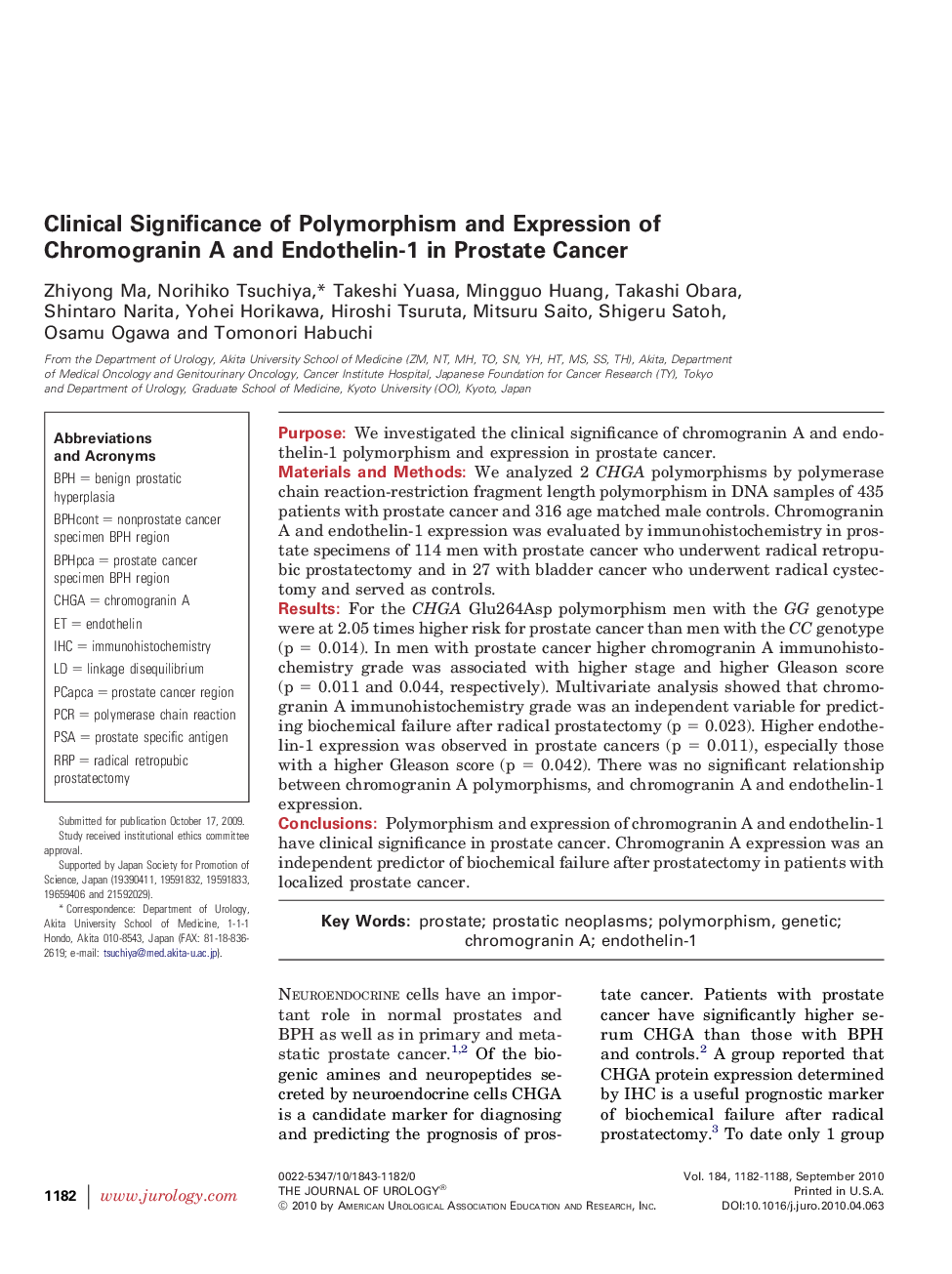| Article ID | Journal | Published Year | Pages | File Type |
|---|---|---|---|---|
| 3872650 | The Journal of Urology | 2010 | 7 Pages |
PurposeWe investigated the clinical significance of chromogranin A and endothelin-1 polymorphism and expression in prostate cancer.Materials and MethodsWe analyzed 2 CHGA polymorphisms by polymerase chain reaction-restriction fragment length polymorphism in DNA samples of 435 patients with prostate cancer and 316 age matched male controls. Chromogranin A and endothelin-1 expression was evaluated by immunohistochemistry in prostate specimens of 114 men with prostate cancer who underwent radical retropubic prostatectomy and in 27 with bladder cancer who underwent radical cystectomy and served as controls.ResultsFor the CHGA Glu264Asp polymorphism men with the GG genotype were at 2.05 times higher risk for prostate cancer than men with the CC genotype (p = 0.014). In men with prostate cancer higher chromogranin A immunohistochemistry grade was associated with higher stage and higher Gleason score (p = 0.011 and 0.044, respectively). Multivariate analysis showed that chromogranin A immunohistochemistry grade was an independent variable for predicting biochemical failure after radical prostatectomy (p = 0.023). Higher endothelin-1 expression was observed in prostate cancers (p = 0.011), especially those with a higher Gleason score (p = 0.042). There was no significant relationship between chromogranin A polymorphisms, and chromogranin A and endothelin-1 expression.ConclusionsPolymorphism and expression of chromogranin A and endothelin-1 have clinical significance in prostate cancer. Chromogranin A expression was an independent predictor of biochemical failure after prostatectomy in patients with localized prostate cancer.
